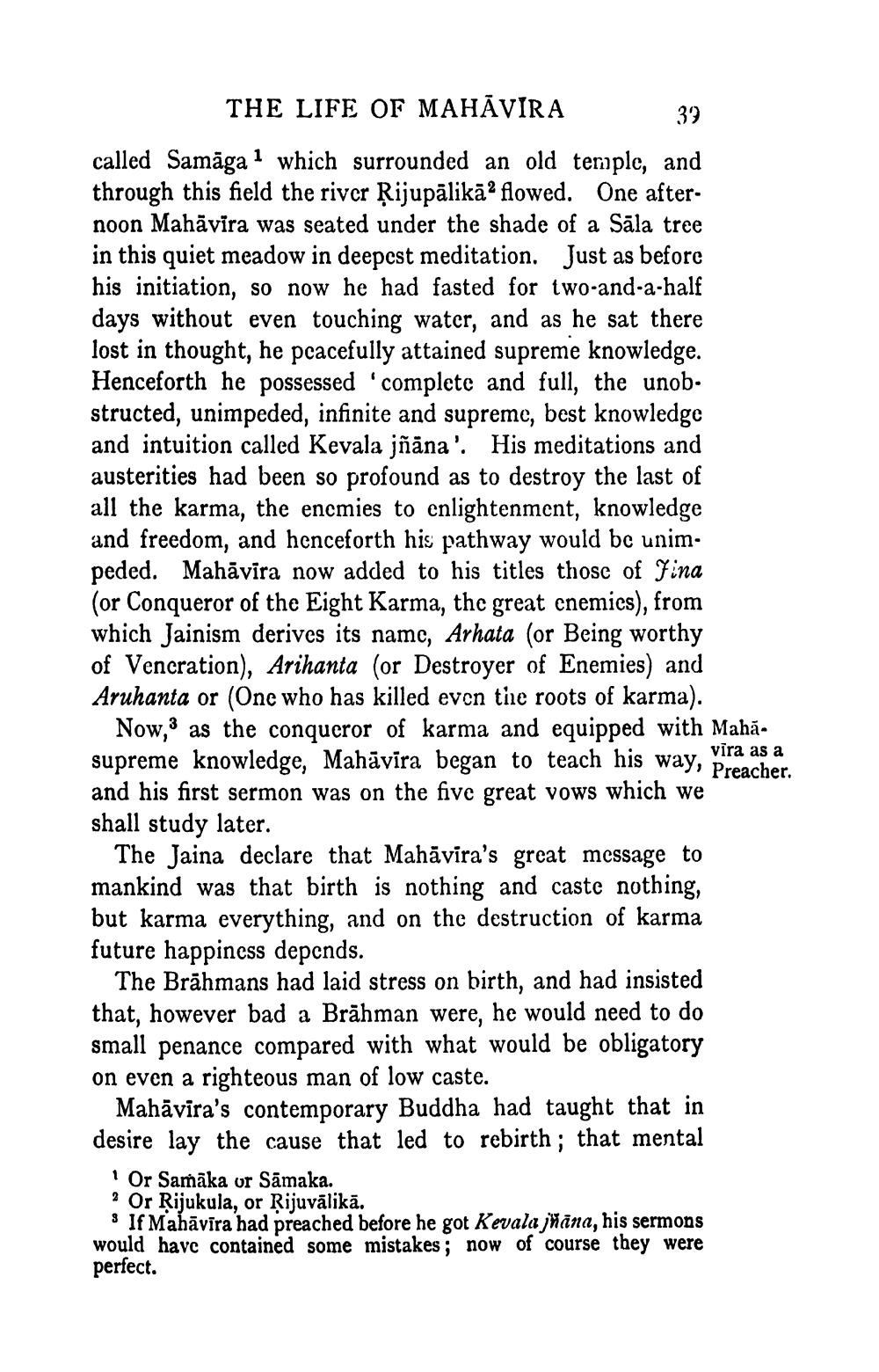________________
THE LIFE OF MAHAVIRA
39
called Samāga 1 which surrounded an old temple, and through this field the river Rijupālikā? flowed. One afternoon Mahävira was seated under the shade of a Sāla tree in this quiet meadow in deepest meditation. Just as before his initiation, so now he had fasted for two-and-a-half days without even touching water, and as he sat there lost in thought, he peacefully attained supreme knowledge. Henceforth he possessed 'complete and full, the unob. structed, unimpeded, infinite and supreme, best knowledge and intuition called Kevala jñāna'. His meditations and austerities had been so profound as to destroy the last of all the karma, the encmies to enlightenment, knowledge and freedom, and henceforth his pathway would be unimpeded. Mahāvīra now added to his titles those of Jina (or Conqueror of the Eight Karma, the great enemics), from which Jainism derives its name, Arhata (or Being worthy of Vencration), Arihanta (or Destroyer of Enemies) and Aruhanta or (One who has killed even the roots of karma).
Now, as the conqucror of karma and equipped with Mahā. supreme knowledge, Mahāvīra began to teach his way, y
vīra as a
y, Preacher. and his first sermon was on the five great vows which we shall study later.
The Jaina declare that Mahävira's great message to mankind was that birth is nothing and castc nothing, but karma everything, and on the destruction of karma future happiness depends.
The Brāhmans had laid stress on birth, and had insisted that, however bad a Brāhman were, he would need to do small penance compared with what would be obligatory on even a righteous man of low caste.
Mahāvīra's contemporary Buddha had taught that in desire lay the cause that led to rebirth; that mental " Or Samāka or Sāmaka. ? Or Rijukula, or Rijuvālikā.
9 If Mahāvīra had preached before he got Kevala jnana, his sermons would have contained some mistakes; now of course they were perfect.




